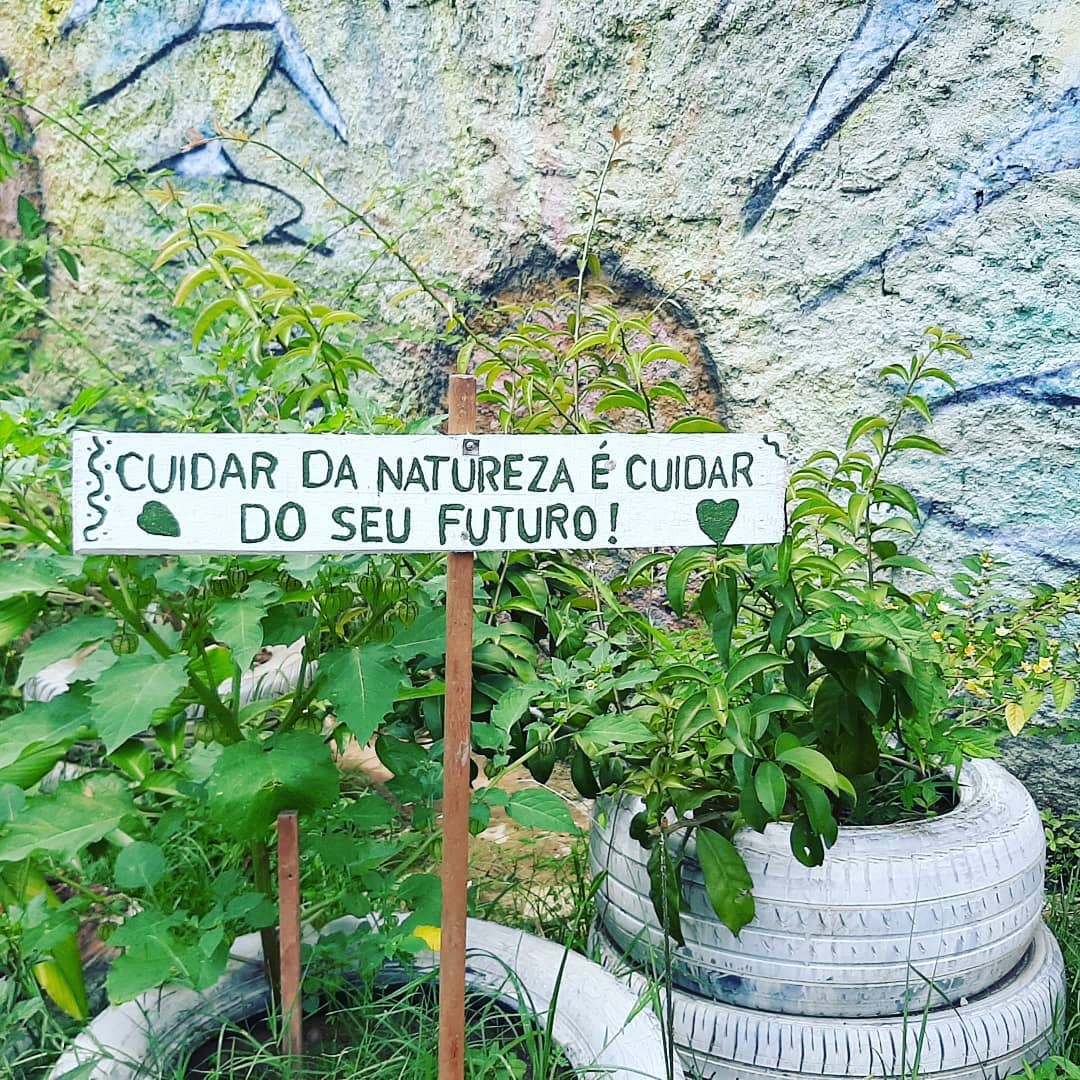
This article is part of a series of profiles of initiatives in Rio de Janeiro’s Sustainable Favela Network.
Initiative: Projeto Luxo do Lixo (Luxury from Waste Project)
Contact: Facebook; Instagram; WhatsApp +5521993556036
Year Founded: 2020
Community: Complexo da Penha
Mission: To reduce waste and create a greener future through a community garden and by promoting environmental education
How to Support: By participating in in-person events, following the organization on social media, and sharing our work with others
An inspiring initiative has taken root in the Quatro Bicas community, located within the cluster of favelas known as Complexo da Penha in Rio de Janeiro’s North Zone. The Luxury From Waste project, founded by sisters Denise and Penha Faria, is committed to tackling the critical issues of waste management and environmental education in their neighborhood. Celebrating its fourth anniversary on August 17, 2024, the project organized a full day of activities for the community including presentations, free health consultations, Covid-19 and flu vaccines, and workshops led by partners and supporters. The celebration also featured a collective effort to clean and organize the community garden—a cherished space that has become a source of pride and a vital asset for the neighborhood.
Origins and Inauguration of the Community Garden
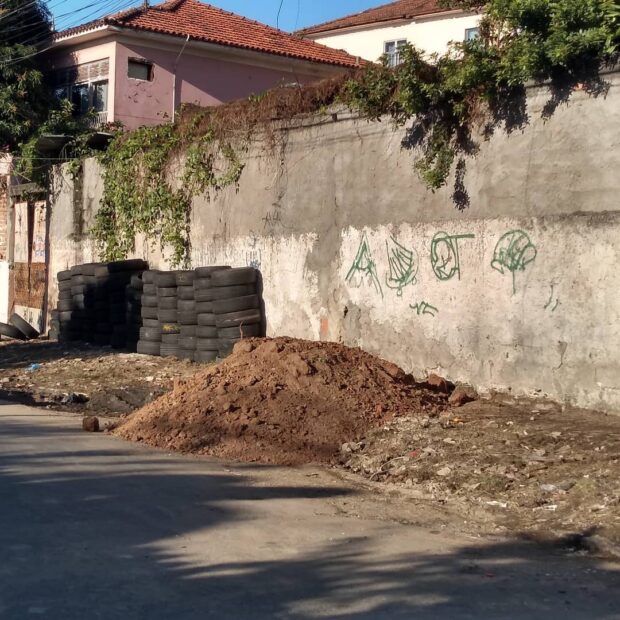
The Luxury from Waste project began with a simple idea: to tackle the issue of inadequate waste disposal in the Quatro Bicas community. Beyond being unsightly, the accumulation of waste highlights the community’s limited access to information about recycling and waste management. The project seeks to reduce the amount of waste on the streets by educating residents on how most discarded items can be repurposed. By highlighting that what often seems like trash can actually be valuable material for reuse, the initiative fosters a culture of environmental awareness and sustainability.
“When I first thought about starting the project, it was because I would open my gate and see the area across from me filled with waste and dirt. I kept looking at it and thinking, ‘How sad, I open my front door and the first thing I see is waste that could be recycled, and neglect.’” — Penha Faria
To address the issue, the project’s key activity is the community garden, which was officially launched on August 1, 2020. The garden not only provides fresh produce to the community but also serves as a practical example of how small-scale urban agriculture can enhance food security and environmental sustainability. As noted by Dona Penha: “The project started on June 5, 2020 [World Environment Day], and the first thing we did was create the community garden.”
In the garden, local residents can find fruit such as noni, soursop, and Barbados cherry; medicinal plants such as lemongrass, Brazilian peppertree, and Chilean boldo; and edible plants like ora pro nobis. The garden’s key feature is its community-based approach: anyone is welcome to come, plant, and harvest freely.
“People can come pick [what they want] whenever they wish: it’s a community garden. Children come here to eat the fruit. Others come to plant freely as well—and that’s the goal!” — Penha Faria
As the garden flourished, it evolved into a vibrant community gathering spot, showcasing the transformative power of collaborative urban agriculture. It provides a hands-on experience in organic and sustainable food cultivation, aligning with the project’s mission to foster environmental awareness and responsibility. This common space demonstrates how small-scale, favela-based initiatives can improve food security and contribute to a greener, more sustainable future.
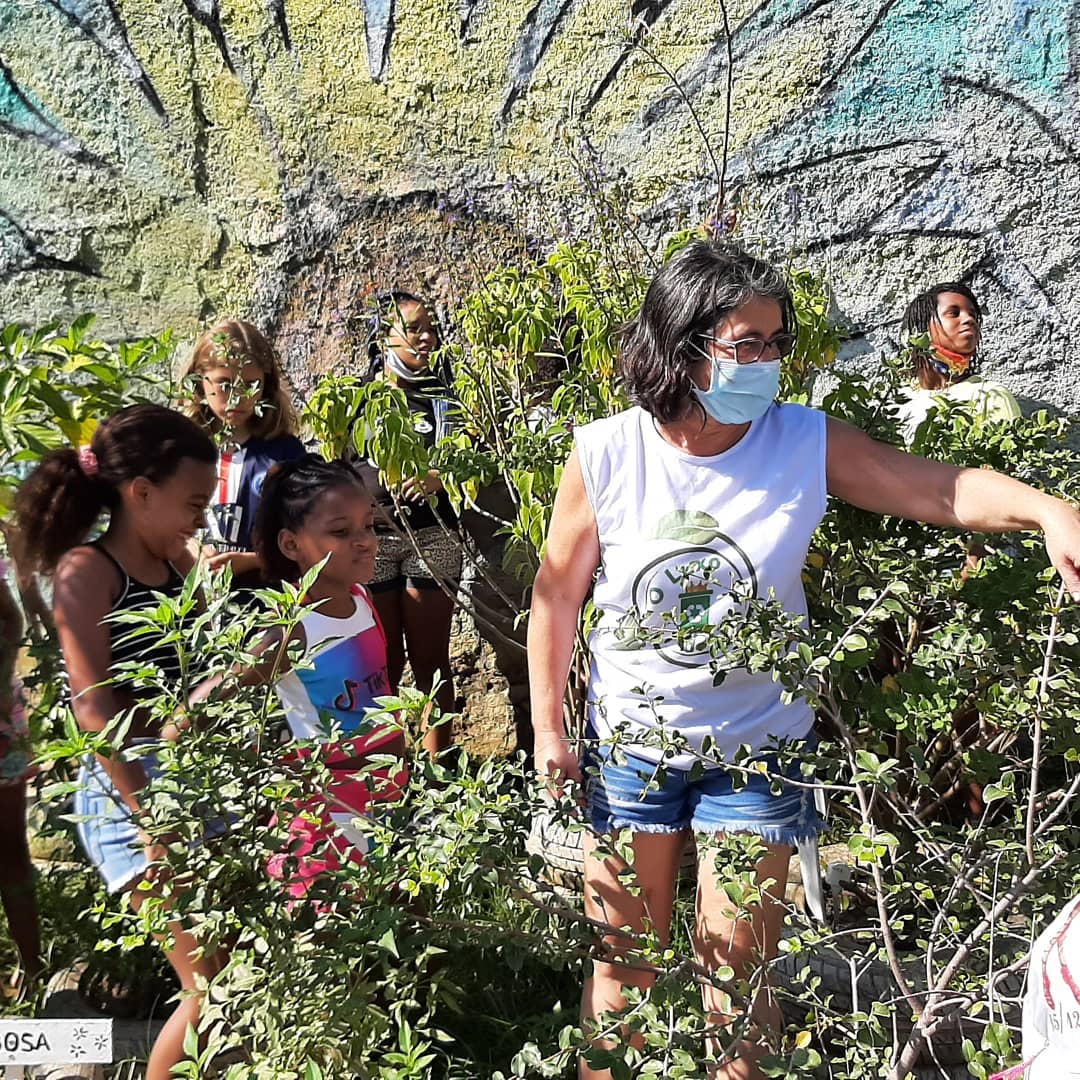
Remaining Challenges
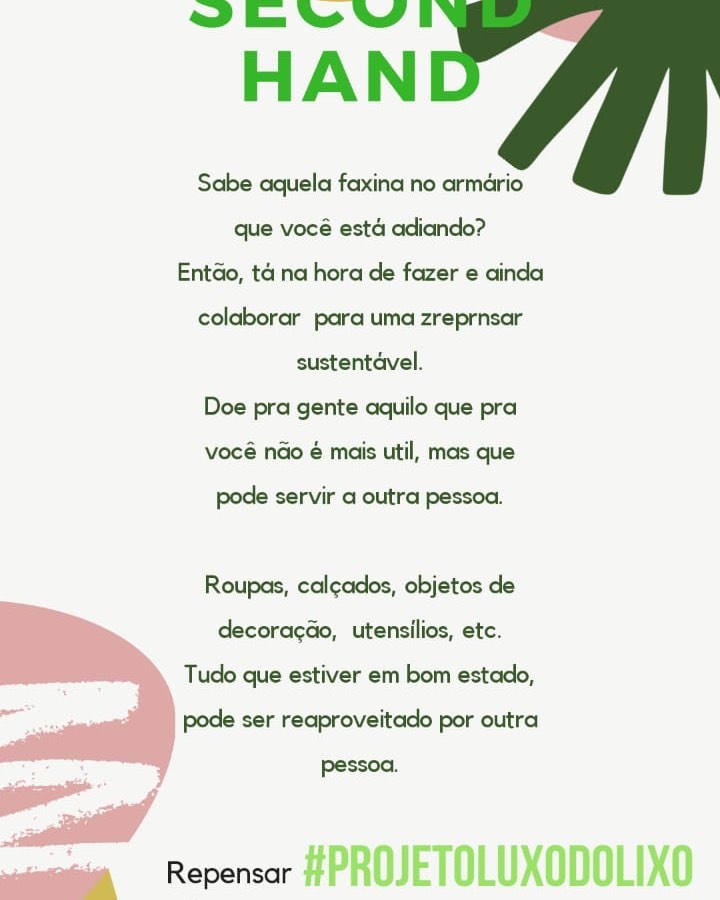
Despite its impactful work, the Luxury from Waste project still faces challenges. One hurdle is the lack of official registration as a legal entity, which prevents the project from accessing specific funding opportunities, such as government calls for proposals and other resources. “Ours is not yet a formal civil society organization. It was just an idea, now it’s a project, but it has not yet materialized as an official organization,” says Dona Penha.
Another significant challenge is altering deeply ingrained behaviors related to waste disposal and recycling. Despite a weekly collection service provided by the municipal waste management utility, COMLURB, some community members continue to discard waste improperly.
“I started out going door-to-door asking people to separate the waste that could be recycled. I even enlisted three people experiencing homelessness to help me with this task. They were supposed to come by later to pick up whatever materials could be recycled. My idea was to do this on the two days when there was no official waste collection. But the three individuals never showed up, and people ended up with all this waste accumulated in their homes and I had to go get it myself… So, I gave up.” — Penha Faria
Her efforts highlight the ongoing need for greater community awareness and engagement in recycling practices. Luxury from Waste seeks to address these long-term challenges by continuing to educate and organize the community. As Penha notes, “The next steps are to find ways to attract more people to the project and to recruit more volunteers. Because, right now, it’s just my sister and me—we can’t manage on our own.” To enhance community engagement and raise awareness about its activities, the project uses social media platforms such as Instagram, WhatsApp, and Facebook. “Whenever there’s a special event or a special day, like World Water Day, we try to post something, a text, some photos to remind people that it’s an important day.”
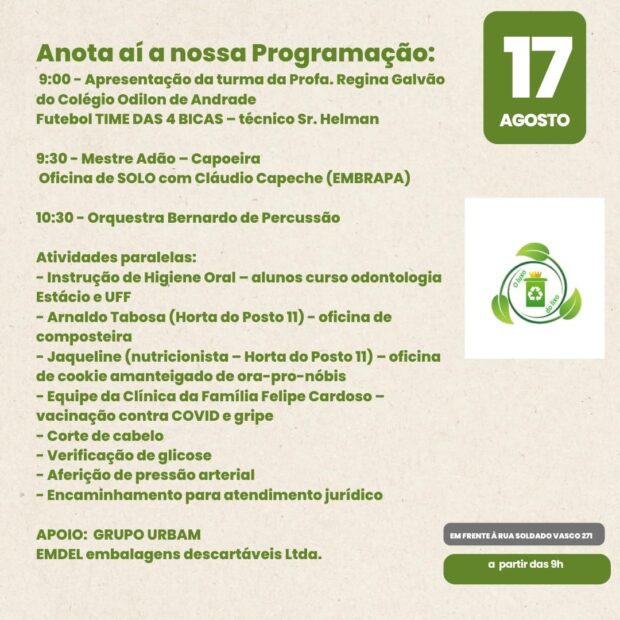
Celebrating Four Years and Looking to the Future
On August 17, the Quatro Bicas Community Garden celebrated its fourth anniversary with a vibrant gathering of local children, residents, and project supporters. The event featured a range of enjoyable activities for all ages, reflecting the community’s spirit and enthusiasm for the garden. True to Dona Penha’s commitment to environmental education and sustainability, the day included workshops on composting, soil management, and cookie-baking using ingredients from the garden, like ora pro nobis. Attendees who brought in cooking oil for recycling were rewarded with lucky bamboo plants, further encouraging eco-friendly practices.
Looking to the future, the project aims to formalize its status as a civil society organization and expand its activities to include more educational programs and initiatives. Penha envisions deeper community involvement and greater awareness of environmental issues. “The future plans are for us to become a civil society organization, and also to expand our actions, whether in environmental education or healthy eating.” She also emphasizes the need for better structuring and additional professionals, such as nutritionists and social workers, to strengthen the project’s efforts.
The Luxury from Waste project highlights the transformative power of grassroots urban farming initiatives. It demonstrates how local, sustainable practices can drive broader goals of ecological sustainability and community well-being. By focusing on environmental education and community engagement, the project not only improves the physical environment of Complexo da Penha but also fosters positive attitudes among residents. With continued support, it hopes to expand its impact, fostering a cleaner, more sustainable future.
For more information or to get involved, contact Luxury from Waste through their social media channels on Instagram, WhatsApp, and Facebook.
View this post on Instagram
